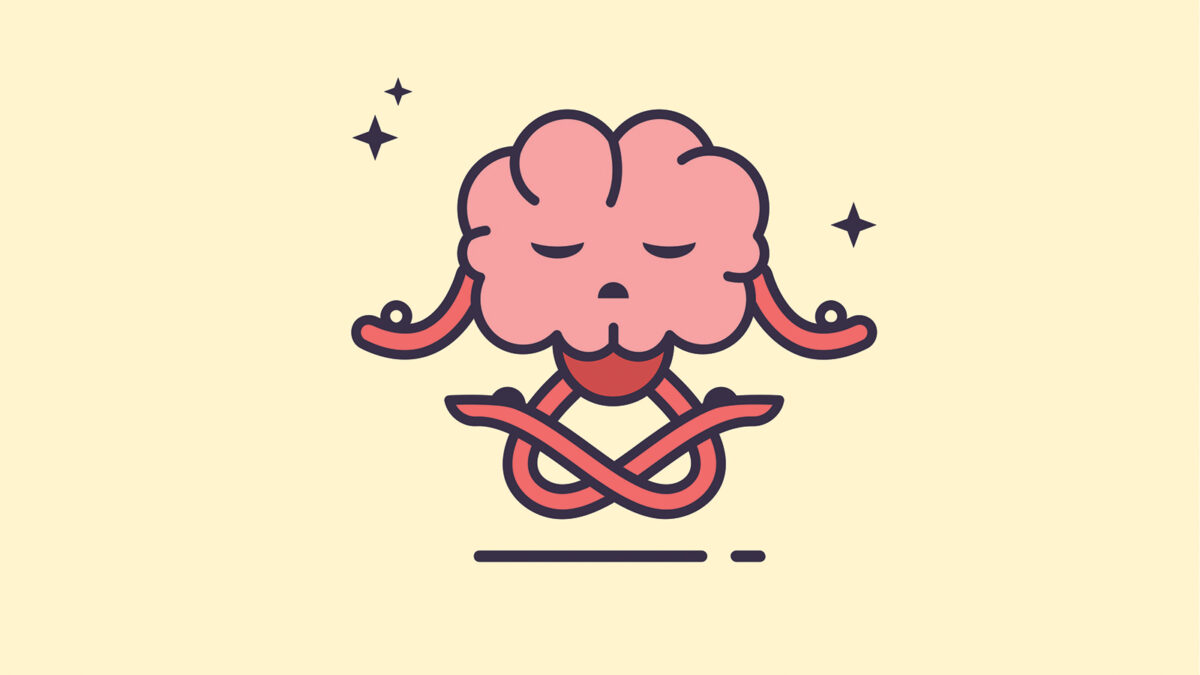
Safe Spaces
Creating a Culture of Care at the CBA
July/August 2024
Download This Article (.pdf)
It’s a privilege to write to you as your CBA president. I’d like to take this inaugural message as an opportunity to express my passion for the work of the associations and to highlight my goals for the year ahead. I also hope to shed light on why attorney mental health will play an important role in my presidency and why I feel it’s important for the CBA to take concrete steps to help build a more welcoming and compassionate legal profession.
Background and Presidential Goals
I bring to this role over 18 years of leadership service to the bar associations, including the Denver Bar Association and CBA-CLE. This year marks my seventh term of service to the CBA’s Joint Management Committee (JMC), which comprises the leaders of all three organizations, including each organization’s president, president-elect, past president, and treasurer, along with an at-large appointment from each organization. I was previously appointed three times to serve as the JMC chair and have served the DBA’s Board of Trustees. I am also a contributing CLE author and presenter. My practice includes immigration litigation before federal administrative agencies, federal courts of record, and state courts on occasion. I converted a solo practice to a small firm model in 2010, and my firm includes a varying mix of paralegals, executive professionals, attorneys, and interns.
I have three goals for my presidential term: (1) to strengthen the CBA’s partnerships with the DBA and CBA-CLE while developing and strengthening relationships with stakeholders throughout the state; (2) to attract new members by demonstrating that the CBA is a safe space for all attorneys to enhance and develop their practice and profession; and (3) to dedicate attention to attorney mental health and survivor awareness.
Meanwhile, together with the CBA staff and a cadre of dedicated volunteer professionals, the CBA will continue all of the important work with which it is tasked, including liaising with the Colorado Legislature through our Legislative Policy Committee, advancing attorney and community needs within our sections and committees, collaborating with each diversity bar in the state through the President’s Diversity Council, and providing access to justice throughout the state through our partnership with many statewide organizations and the DBA’s flagship access to justice program, Metro Volunteer Lawyers.1
Why Focus on Mental Health?
Attorneys are generally a stressed-out group of professionals. We are always in transitional times—between each case action, each court presence, each career decision, and each client entrance and departure. We take on the burdens of others, litigate against our peers, and try to convince the decision-maker that our position should prevail.
This business of conflict can carry significant health hazards. “When stress becomes overwhelming and prolonged, the risks for mental health problems and medical problems increase. Long-term stress increases the risk of mental health problems such as anxiety and depression, substance use problems, sleep problems, pain and bodily complaints such as muscle tension.”2
Attorneys suffer similarly, and repetitively. We can suffer aggression, antagonism, belligerence, combativeness, hostility, and even shame throughout our careers, from personal confrontations to professional defeat. We uniquely straddle a very thin line of survival, as many events can feel cataclysmic in an attorney’s life, be it even one error, one oversight, or one defeat. This thin line could represent the difference between life and death.
To compound the issue, attorneys are often exposed to traumatic events. “Trauma is when we experience very stressful, frightening, or distressing events that are difficult to cope with or are out of our control. Trauma can include events where you feel: frightened, under threat, humiliated, rejected, unsafe, ashamed, or powerless.”3 Three main types of traumas include (1) acute trauma (resulting from a single incident); (2) chronic trauma (resulting from repeated and prolonged events); and (3) complex trauma (exposure to varied and multiple traumatic events, often of an invasive, interpersonal nature). Attorneys are at risk of suffering each kind of trauma throughout their careers.
Traumatic stress can change a person’s brain chemistry and structure. Studies suggest that trauma is associated with negative permanent changes in key areas of the brain, including (1) the amygdala (the part of the brain that processes fear and other emotions); (2) the hippocampus (the part of the brain that’s responsible for learning and memory); and (3) the prefrontal cortex (the part of the brain that’s involved in executive functions, such as planning, decision-making, personality expression, and controlling social behavior).4
Because the legal profession includes significant stressors, we must be vigilant to protect our mental health. We must strive to minimize or eliminate our exposure to constant triggers, which means we must find ways around and through our triggers.
What We’re Already Doing Well
The legal profession has made strides in acknowledging and addressing attorney well-being. The Colorado Supreme Court formed a task force on lawyer well-being in September 2018, and its website provides links to valuable information on this topic.5 Firms have implemented internal mechanisms to help their teams with wellness efforts.
The CBA devotes programming and resources to well-being efforts for attorneys through its sections and committees.6 It also works with the Colorado Supreme Court’s Colorado Lawyer Assistance Program (COLAP) and Colorado Lawyers Helping Lawyers (CLHL).
COLAP offers free and confidential well-being consultations for topics such as stress and burnout; secondary trauma and compassion fatigue; work-life balance; improving well-being in the workplace; personal and professional issues; and mental health, substance use, and addiction concerns. COLAP’s mission is to promote well-being, resiliency, and competency by assisting Colorado judges, lawyers, and law students with any issue that compromises their practice, efficacy, and quality of life.7
CLHL is a CBA-supported lawyer-to-lawyer program that’s available to all lawyers, judges, law students, and law school graduates. CLHL focuses on helping those who are experiencing alcohol, substance abuse, and mental health issues. This is achieved through confidential peer support, education, referral, and outreach. The peer support program offered through CLHL does not provide treatment or evaluation services. Rather, CLHL provides peer support groups in Denver and a statewide “virtual” telephone support group.8
New Plans for the Future
In addition to our existing well-being commitments, I hope to guide the CBA to devote specific attention to attorney mental health, toward healing ourselves so we can survive attrition in our profession. All health begins with mental health. Because mental health affects people’s thoughts, behaviors, and feelings, any positive gain in mental health gifts us many times over, in every facet of our lives.
Attorneys can achieve success for themselves and for others by exercising gentleness, empathy, and compassion. Many philosophies can guide us in this pursuit, including Zen practice, stoicism, and Taoist philosophy, to name just a few. If we can embrace new approaches to old problems, certainly to repetitive problems, we can positively affect our own experience in our profession and positively affect the experience of those we interact with.
This year the CBA will collaborate with mental health and addiction specialists to offer our members CLE programs and other initiatives to promote attorney sustainability and survival. We will offer safe spaces to our members where the bar’s collective intelligence and effort promotes attorney civility and professionalism. We will volunteer for more efforts for health and safety for law students, new attorneys, marginalized attorneys, and confused or scared attorneys.
As lawyers, we owe a duty of care to one another. We can exercise empathy for our fellow sufferers. We can give more care and empathy to ourselves, and to each other. The CBA is a place where lawyers can collaborate, cooperate, and even commiserate. The CBA fosters mentorship and sponsorship. The CBA represents the largest voluntary pool of attorney expertise in the state of Colorado. The CBA is a safe space, and attorneys need safe spaces. At the CBA an attorney can find a welcoming peer, civil discourse, and a commitment to professionalism.
What About Survivor Awareness?
Attorneys are already survivors, in many ways. We’ve survived the bar exam and many other attorney hurdles thereafter. But the practice of survivor awareness is an additional facet of empathy that we can use to immediately enhance our practice and our mental health.
A “survivor” is “a person who suffered from destructive injuries, acute or chronic, emotional, mental, and/or physical victimization, derived from real or perceived threats or action, and because of these circumstances suffers from trauma.”9
Survivors can be considered part of any group that has met and superseded significant adversity. Often survivors have suffered victimization that may be continuing. However, victimization is not a prerequisite for the definition. Contrast, for example, a domestic violence survivor with a cancer survivor.
Attorneys, while surviving our profession, can learn to offer ourselves and others a survivor-centered approach that is validating, non-blaming, and nonjudgmental. Guiding principles for working with survivors include safety, respect, and nondiscrimination. Affording these principles to ourselves and each other could significantly enhance our profession’s civility and our longevity in our practices.
From Darkness Comes Compassion
Pema Chödrön, the beloved Buddhist teacher, author, nun, and mother, stated: “Compassion is not a relationship between the healer and the wounded. It’s a relationship between equals. Only when we know our own darkness well can we be present with the darkness of others. Compassion becomes real when we realize our shared humanity.”10
As we share our profession together, we gain by helping ourselves and each other.
Related Topics
Notes
1. Attorneys throughout the state volunteer for myriad pro bono community legal clinics, and their service is coordinated through MVL and the CBA employee teams. The CBA encourages attorneys to develop and enhance their practice through sustained community service, and many clinics welcome attorney volunteers in any stage of their career. Current clinics include the Bankruptcy Clinic, the Denver District Court Family Law Ask-a-Lawyer Clinic, the Colorado Federal Pro Se Clinic, the Colorado Lawyers for Colorado Veterans Legal Clinic, the Family Law Legal Clinic, the Mi Casa Legal Clinic, the Denver Indian Center Legal Clinic, the Denver Legal Night Program, the Power of Attorney Clinic, the Denver District Court Self-Help Center, the Denver County Court Self-Help Center, the Justice and Mercy Legal Aid Center Clinics, the Project Homeless Connect Program, the Non-profit Legal Audit Clinic, and the Small Claims Clinic. For more information, visit https://www.denbar.org/Public/Legal-Clinics.
2. See The Centre for Addiction and Mental Health (CAMH), “Stress,” https://www.camh.ca/en/health-info/mental-illness-and-addiction-index/stress#:~:text=When%20stress%20becomes%20overwhelming%20and,complaints%20such%20as%20muscle%20tension. The CAMH is Canada’s largest mental health teaching hospital. It is fully affiliated with the University of Toronto and is a Pan American Health Organization/World Health Organization Collaborating Centre.
3. Mind, “What is Trauma?,” https://www.mind.org.uk/information-support/types-of-mental-health-problems/trauma/about-trauma/#:~:text=Trauma%20is%20when%20we%20experience,that%20could%20be%20considered%20traumatic. Mind is a registered charity in the United Kingdom dedicated to mental health.
4. The Cleveland Clinic, “CPTSD (Complex PTSD),” https://my.clevelandclinic.org/health/diseases/24881-cptsd-complex-ptsd.
5. See https://coloradosupremecourt.com/Current%20Lawyers/TaskForceWellBeing.asp.
6. See, e.g., the following CBA sections and committees, in addition to subject-specific ones: the Arbitration and Mediation Section, the Professionalism Coordinating Council, and the Ethics Committee.
7. Contact COLAP at (303) 986-3345 or info@coloradolap.org, or visit www.coloradolap.org. All calls and emails are confidential.
8. In addition, three attorneys are available for direct phone contact to discuss an individual’s personal issues and strategies for dealing with those problems. These calls are not for emergencies—contact 911 for emergencies.
9. The University of Toledo’s Human Trafficking and Social Justice Institute’s PATH (Partners Against Trafficking in Humans) Project, https://www.utoledo.edu/hhs/htsji/path.
10. Chödrön, The Places That Scare You: A Guide to Fearlessness in Difficult Times (Shambhala 2002).


